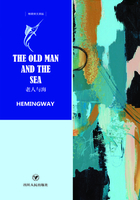Rather than love, than money, than fame, give me truth. I sat at a table where were rich food and wine in abundance, and obsequious attendance, but sincerity and truth were not; and I went away hungry from the inhospitable board. The hospitality was as cold as the ices. I thought that there was no need of ice to freeze them. They talked to me of the age of the wine and the fame of the vintage; but I thought of an older, a newer, and purer wine, of a more glorious vintage, which they had not got, and could not buy. The style, the house and grounds and "entertainment" pass for nothing with me. I called on the king, but he made me wait in his hall, and conducted like a man incapacitated for hospitality. There was a man in my neighborhood who lived in a hollow tree. His manners were truly regal. I should have done better had I called on him.
不管你的生活如何卑微,你都要严肃认真地对待它。不要逃避生活,也不要用恶毒的话描述生活。你的生活不像你自己那么糟糕。当你最富有的时候,生活看上去反倒是最贫穷的。故意挑毛病的人,连天堂也不会放过。虽然生活清贫,但你要对生活付出热情。即便身处贫民窟,你也可能会分享到一段快乐、激动、灿烂的时光。西下的落日洒在贫民窟窗户上的光芒,与照在富贵人家豪宅上一样光彩夺目;到了早春的时候,门前的积雪同样会融化。我唯一能看到的是:一个心态平静的人在那里可以心满意足地生活,怀着乐观向上的思想,仿佛居住在皇宫里一般。在我看来,城镇贫民的生活反倒常常是最独立的。或许他们只是足够伟大,因此可以毫无顾虑地对待世间的事情。大部分人认为他们对于城镇的恩惠不屑一顾。可在现实生活中,他们维持生活的手段反而?常是不诚实的,这让他们更为声名狼藉。向圣贤学习,像培育花园中的花草一样来培育贫困吧。不管是衣服还是朋友,没必要不辞辛苦地去获取新东西。
让旧的改变,回到它们的怀抱。世间万物不会变化,变的是我们。卖掉你的衣服,保留你的思想。上帝会见证,你并不想融入社会。如果我整天被局限在阁楼的角落,如同一只蜘蛛,只要我还有自己的思想,那么世界还是?来那样大。一位哲人曾说过:“三军可夺帅也,匹夫不可夺志也。”不要迫切谋求自己的发展,不要让各种影响干扰自己;这一切都是浪费。因为谦卑如同黑暗,揭露出天国之光。贫穷与卑贱的阴云纠缠着我们,“看哪!天地万物在我们的眼界中扩大了。”我们常常得到警示,如果上天赋予我们与克洛伊索斯相同的财富,我们的目标一定不会改变,我们的方式也将不会改变。此外,如果贫困束缚了你,例如,你没钱买书和报纸,你的?验只是局限于最有意义、最为重要的那一部分;你被迫与那些糖和淀粉含量最高的物质应付。越靠近骨头的地方就越甜美。你不可能再成为一个不务正业的人。宽宏大量不会让曾在较低层次的人在较高层次失去什么。过多的财富只能买到过多的物品,而人所必需的灵魂是用金钱买不到的。
我住在一堵铅墙的角落里,而且铅墙里还灌注了一点儿钟í的合金。每当我正午休息时,?常能听到阵阵杂乱无章的喧闹声。这噪音源自我的同代人。我的邻居向我所讲述他的奇遇,都是和那些知名的绅士淑女有关的,如他们在宴会桌上遇到了哪些重要人物。但是我对这些事情根本没有兴趣,这如同《每日时报》的内容一样乏味,服饰打扮和礼节举止是他们的兴趣和谈话的主题。但是任你怎么去刻意装扮,呆头鹅总归是呆头鹅。他们向我不厌其烦地讲起加利福尼亚和得克萨斯,英格兰和东西印度群岛,来自佐治亚或马萨诸塞的尊敬的某某先生——全是瞬间即逝、不能长存的事情。我终于无法忍受,差点儿要像马穆鲁克大人一样从他们的庭院中偷偷溜走。
我喜欢处在我自己的世界——不愿招人耳目地走在盛大的游行庆祝队伍中,而想与宇宙的创造者平等地一起同行,假如我可以的话——不想生活在这个轻浮急躁、神?兮兮、熙熙攘攘、举止随便的19世纪,而想伴着19 世纪一天天地流逝,或立或坐。人们庆祝的是什么呢?他们都成了某个筹备委员会成员,时刻期待着某个大人物的演说。上帝不过是今天的轮值主席,而韦伯斯特才是他的演说家。对于那些强烈地、恰好让我感兴趣的事物,我喜欢称它们的重量,调好砝码,让重力决定一切——决不想放在秤杆上,试图让它称得更轻一些——不妄加推测任何事情,而是完全根据其实际情况来解决;在那条我能走的必?之路上继续前行,在这条路上,我可以战胜任何力量。在拥有坚实稳固的基础之前,就开始着手建造起一座拱门,我不会因为这样的行为感到丝毫满足。所有地方的底部都是结实的。
我们从书中得知这样一个故事:一个旅行者问一个男孩,前方的这块沼泽底部是不是坚固。男孩回答道:“是坚固的。”可是旅行者没走多远,他的马便深陷沼泽,不一会就到了马的腰部,他对男孩说:“我本以为你说这块沼泽底部是坚固的??”“是坚固的啊,”男孩说道:“可是,你还没有触到它的底部一半深呢。”社会的泥沼和流沙也是这个道理。但是只有少年老成的人才知晓这一点。只有在特定少有的巧合中,人们的所想、所言、所为才是正确的。有一些人愚蠢地只知道是将钉子钉入板条和灰泥中,我可不想与这样的人为伍;要是那么做,我会彻夜难眠。给我一把锤子,让我感受一下钉板条的感觉。不要依靠油灰状的黏性材料。钉入一根钉子,就钉得结结实实,就算是在半夜醒来,一想到自己的工作,你也会心满意足——即便请来缪斯女神,你对这件工作也没有愧疚。这么做,而且只有这么做,上帝才会伸出援助之手。钉入的每根钉子,都应像宇宙机器中的?钉一样固定,你的工作才能继续下去。
我不在乎爱、金钱、名誉,我只要真理。我坐在摆满佳肴美酒的桌旁,身边有谄媚的侍从,但是少了真诚和誓言。我饿着肚子,转身离开这冷漠的餐桌。这种盛情如冰一样冰冷,我想无须再用冰块来冻结它们。他们告诉我葡萄美酒的年份和产地的历史。这让我想起了一种年深越久就更新、更纯、更荣光的佳酿,可他们手上没有,也无法买到。我把他们的风格、豪宅、庭院和“娱乐”当做草芥。我去拜见国王,他却让我在客厅等候,他的行为如同丧失了好客能力似的。我的一个邻居住在树洞里,他的举止才是真正的王者。我要是去拜访他,待遇肯定会好得多。
不管你的生活如何卑微,你都要严肃认真地对待它,生活下去;不要逃避生活,也不要用恶毒的话描述生活。你的生活不像你自己想的那么糟糕。
亚里士多德论友谊
Aristotle on Friendship
[古希腊]亚里士多德/Aristotle
The ancients listed friendship among the highest of virtues. It was an essential element in the happy or fully flourishing life. "For without friends," Aristotle says, "no one would choose to live, though he had all other goods." Words worth remembering in a world of perishable "goods."
According to Aristotle, friendship either is, or it involves, a state of character, a virtue. There are three kinds of friendship. These are based on pleasure in another' s company (friendship of pleasure), or on usefulness in association (friendships of utility), or on mutual admiration (friendships in virtue). All are essential to the good life, and the best sorts of friends will not only admire each other' s excellence, but take pleasure in each other' s company and find their association of mutual advantage. Here is a portion of Aristotle' s classic discussion.
As the motives to Friendship differ in kind, so do the respective feelings and Friendships. The species then of Friendship are three, in number equal to the objects of it, since in the line of each there may be "mutual affection mutually known."
Now they who have Friendship for one another desire one another' s good according to the motive of their Friendship; accordingly they whose motive is utility have no Friendship for one another really, but only insofar as some good arises to them from one another.
And they whose motive is pleasure are in like case: I mean, they have Friendship for men of easy pleasantry, not because they are of a given character but because they are pleasant to themselves. So then they whose motive to Friendship is utility love their friends for what is good to themselves; they whose motive is pleasure do so for what is pleasurable to themselves; that is to say, not insofar as the friend beloved is but insofar as he is useful or pleasurable. These Friendships then are a matter of result: since the object is not beloved in that he is the man he is but in that he furnishes advantage or pleasure as the case may be.















